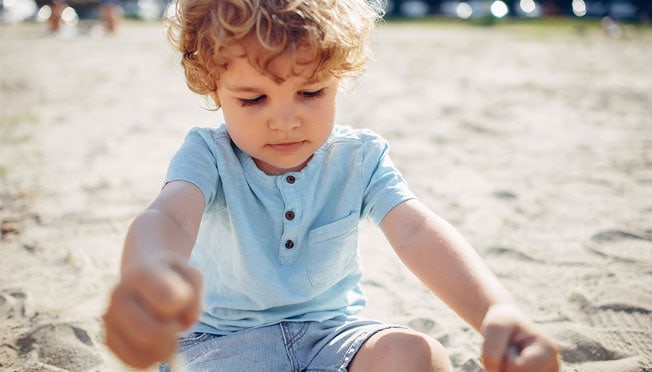Modern life is hectic. I know this, because I’m a mom.
I have two homeschooled children, aged 6 and 8, who share a love for Lego, much like other kids their age. They can happily immerse themselves in building for hours, but inevitably, tensions rise when they both lay claim to the same Lego piece.
Encouraging alternative indoor activities such as drawing, crafting, or reading doesn’t always resolve the issue. But there’s one thing that always does: heading outside.
A couple of years ago, I discovered that the most effective method to quell their disputes and restore harmony was to venture outdoors. Engaging in any outdoor activity, even for a short period of time, seemed to work wonders. This made me dig deeper into the transformative effect of outdoor play on their behavior and well-being.
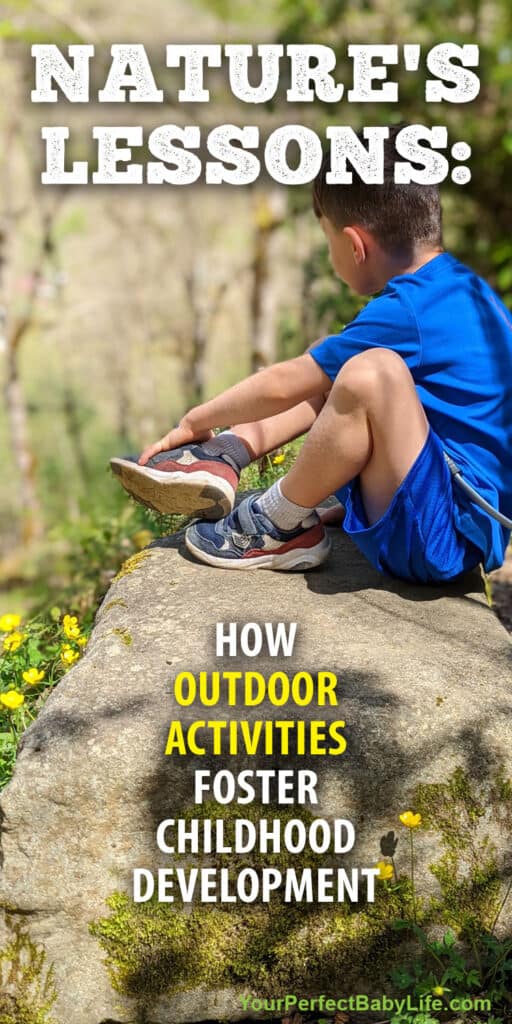
In a world where screens and structured activities consume our lives, the importance of outdoor play in early development is often overlooked. But when it comes to the health and growth of our little ones, I discovered that outdoor play is crucial. It helps our babies and children to develop motor skills, increase their ability to think critically and, perhaps most importantly, foster a love of mother nature.
Nature serves as a natural laboratory where young adventurers can explore at their own pace. From mastering balance on a wobbly log to navigating the complexities of social interaction in a game of tag, the outdoors presents endless opportunities for learning and discovery.
Let’s explore how spending time outdoors, engaging with mother nature and letting your little one’s imagination run wild helps to nurture and boost their development.
The Physical Benefits of Outdoor Learning and Play
When it comes to physical benefits, outdoor play can help children to:
Spending time outdoors plays a crucial role in children’s physical development, particularly when it comes to motor skills. A huge number of studies have highlighted the significance of outdoor play in developing motor skills among toddlers.
Activities that children naturally love, like running, jumping, climbing, and balancing, are commonly experienced in outdoor settings. These activities contribute significantly to the development of gross motor skills, as well their strength, balance and agility.

Outdoor play is also instrumental in addressing childhood obesity and promoting overall physical health. Research has, again and again, shown that children who engage in regular outdoor play have lower rates of obesity, setting them up for a healthier, longer life (such as this 2015 study, which found that outdoor play time was linked with lower BMIs in children). Open spaces outdoors provide ample opportunities for physical activity, without them even realizing it.
Not only do children who play outside get more exercise, but they’re exposed to more daylight. Vitamin D, provided by the sun, is essential for calcium absorption and bone development, especially in children. This reduces the risk of conditions such as rickets and osteoporosis later in life.
Read Next: Green Thumbs, Little Fingers: Gardening with Toddlers
Cognitive Development and Outdoor Play
Outdoor play can help support cognitive development by:
Research consistently demonstrates that exposure to nature and outdoor play significantly enhances cognitive functioning in toddlers.
Engaging with the natural world has been linked to better creativity, problem-solving skills, and improved concentration in young children.
Spending time outdoors allows toddlers to explore and interact with their surroundings in ways that stimulate their imagination and encourage innovative thinking.

Ever-changing outdoor environments provide limitless opportunities for children to face new challenges and puzzles. These challenges encourage children to use and develop their problem-solving abilities as they navigate through natural obstacles.
One crucial aspect of outdoor play for children is the concept of “risky play”. Risky play involves activities that push children out of their comfort zones and encourage them to assess and manage risks by themselves. This allows toddlers to develop essential decision-making and risk assessment skills.
Activities like climbing trees, balancing on logs, or exploring uneven terrain give children the chance to gauge their own abilities, make informed choices, and navigate uncertainties. These skills are vital for their cognitive development and resilience.
Moreover, numerous studies have established a positive correlation between outdoor play and academic performance in children. Time spent engaging in outdoor activities has been linked with better cognitive skills, including attention and memory, which are huge parts of academic success.
Outdoor play provides a holistic approach to education that fits well with traditional classroom environments. It gives children the opportunity to ‘learn by doing’, a learning style that suits so many of us more so than learning by reading or listening.
Emotional Well-being and Social Skills
Outdoor play can support emotional and social skills in children by:
Another benefit of outdoor play for children (in this very long list!) is the opportunity to develop emotional and social skills. Being outside is linked with improved moods and reduced anxiety and stress levels for all ages.
Research indicates that spending time in natural environments can have a calming effect on children, leading to better mental health. Studies have shown that exposure to green spaces and outdoor activities can significantly lower cortisol levels, the hormone associated with stress. At the same time, spending time outside in nature is linked with an increase in serotonin, which is linked to happiness.
As well as improved mental health, outdoor play supports the development of social skills in young children.
Through group play in outdoor settings, toddlers and children learn to share, cooperate, and negotiate – essential components of social interaction.
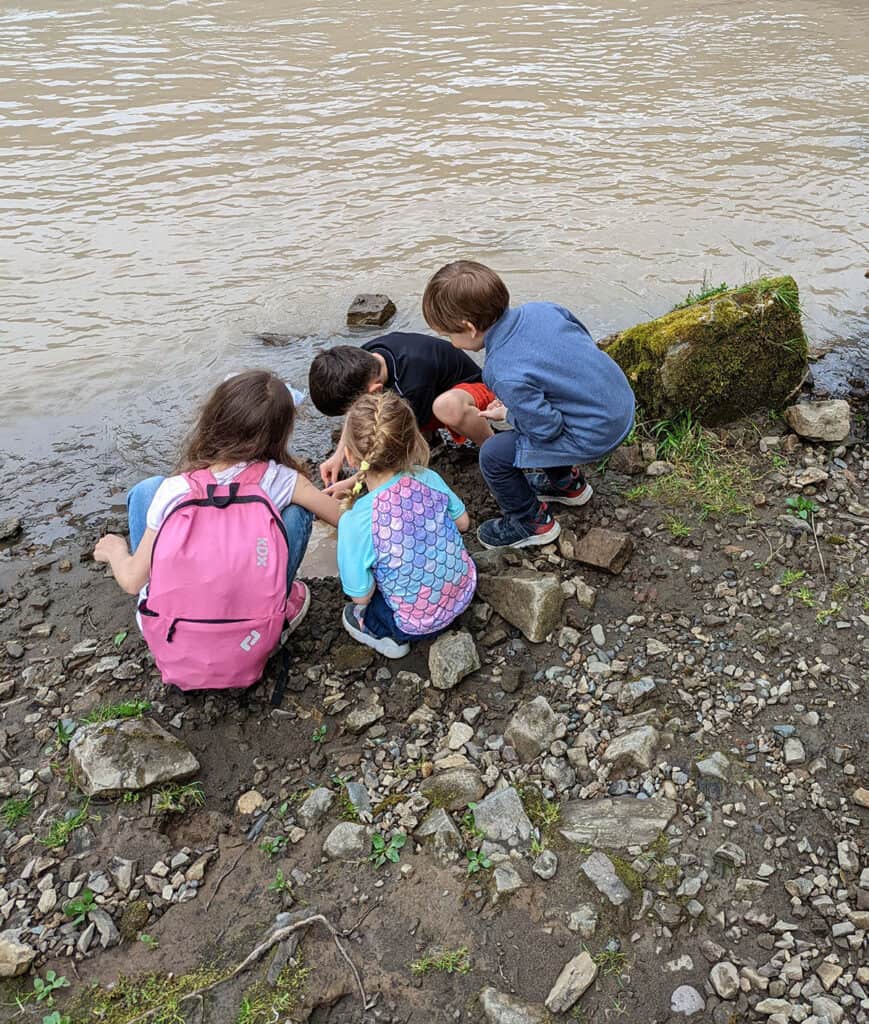
Activities which require children working together, like building forts, playing tag, or going on a nature hunt encourage the development of teamwork and communication skills, laying the foundation for positive social behavior.
If that wasn’t enough, outdoor play provides a natural environment for building friendships.
Interacting with other children in unstructured outdoor settings allows children to build empathy and the ability to regulate their emotions. Research suggests that children who play outside often show better levels of empathy and sensitivity.
Environmental Awareness and Connection
Outdoor play can help children connect with nature by:
Regular outdoor play helps to connect our little ones with the natural world. Spending time in the beauty of nature helps children gain a profound appreciation for it. It encourages curiosity, a better understanding of our ecosystem and a natural want to protect it.
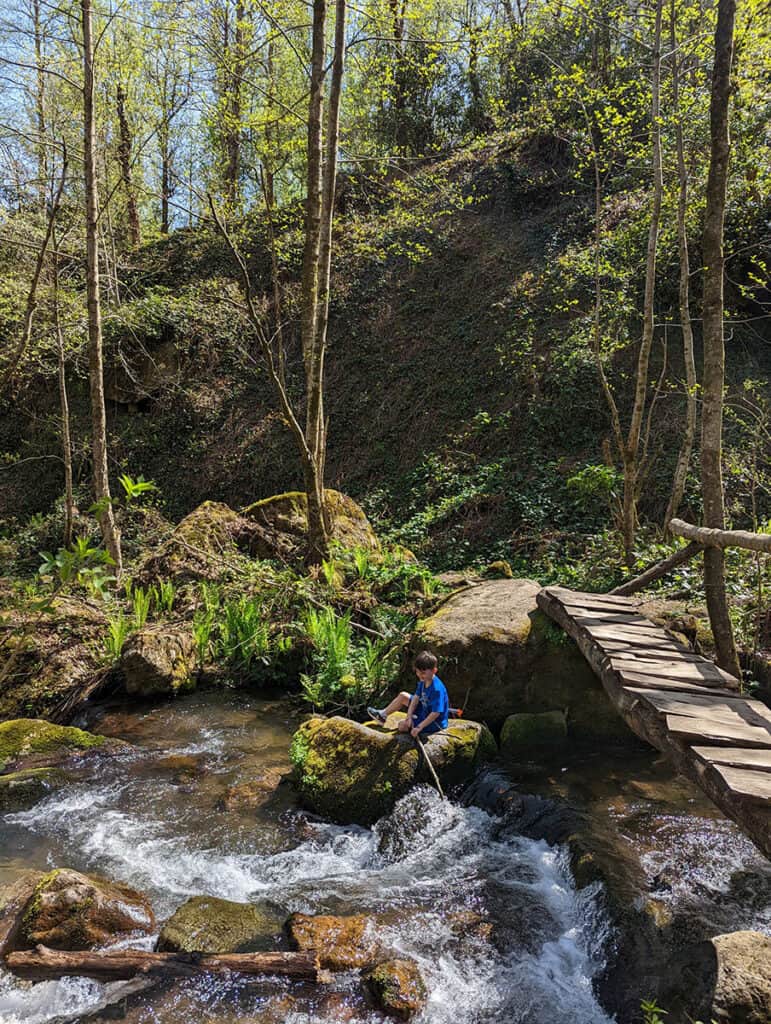
Children who grow up immersed in nature are more likely to adopt eco-friendly practices and advocate for environmental protection throughout their later lives, helping to protect our world for future generations to enjoy.
Overcoming Barriers to Outdoor Play
Some barriers parents and children might face to outdoor play are:
Parents can overcome these barriers by:
Naturally, some children have easier access to outdoor spaces and nature play than others. Urban living, concerns around safety and the popularity of screens can all be barriers to little ones accessing outdoor play.
In urban areas, limited green spaces and busy streets may pose challenges for outdoor play. Safety concerns, such as heavy and stranger danger, often lead parents to restrict outdoor playtime.
Additionally, the ever-increasing popularity of screens and digital devices can lure children indoors and reduce their motivation to head outside and explore.
These potential barriers can impact children’s physical activity, social interaction, and connection with nature. But there are ways to overcome them.
Parents and carers living in urban areas can seek out local parks, playgrounds, or nature reserves within their community to provide safe and accessible environments for their children to explore.
Organizing outdoor playdates with friends or neighbors can also address concerns about safety and enhance social interaction.
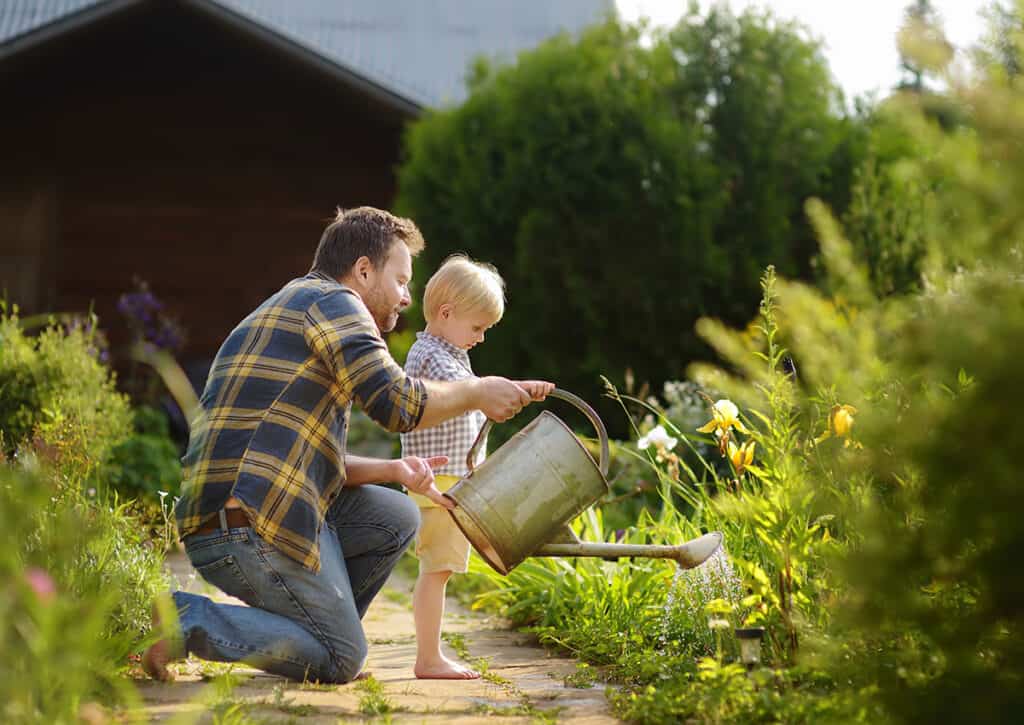
To combat screen time issues, parents can set boundaries on how much video and game time children can have. Boundaries may be met with resistance at first, but they’re crucial in establishing a positive parent-child relationship, and freeing up time to enjoy the natural world.
Parents can lead by example by engaging in outdoor activities with their children, whether it’s going for a nature walk, playing sports, or doing some gardening together. If you’re looking for ideas to get started in nature play, check out our roundup of the best outdoor activities for 1-year-olds!
Conclusion
By embracing outdoor and nature play, children engage in experiences that promote healthy growth and wellbeing. From improving physical fitness and motor skills to fostering social interaction and emotional resilience, playing outside (with both parents and peers) offers opportunities for children to thrive. As playing outside becomes less attractive to children, with screens dominating society, it’s so important for parents to recognize the vital role of outdoor play when it comes to raising healthy children.
Plus, it helps to solve arguments over Lego.
Check out our guide to the best outdoor activities for 1 year olds, and foster a love for the outdoors from a young age.
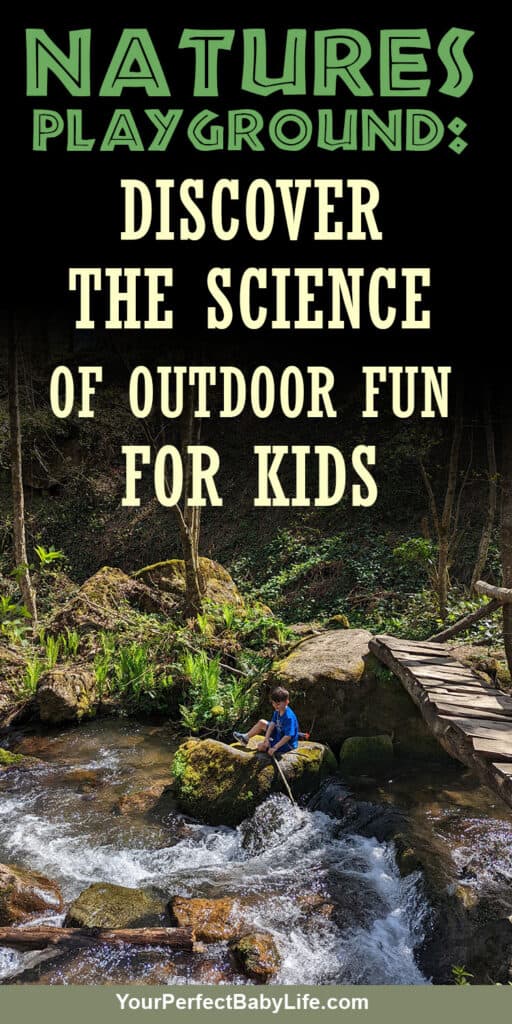
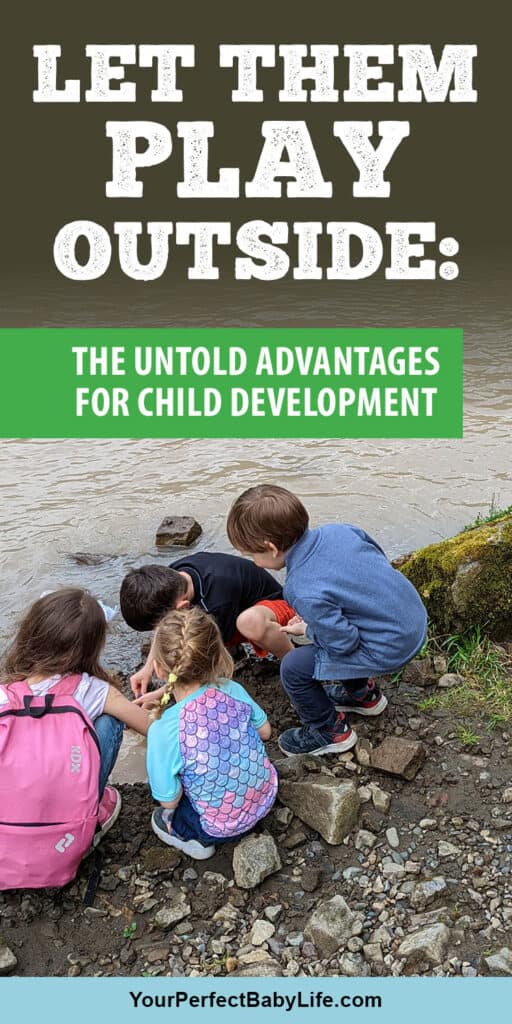
Loved these ideas? ???? Help spread the joy and inspiration by sharing this article with other parents and nature enthusiasts on Pinterest! Your share could spark a world of adventure for little explorers everywhere. Happy pinning! ????




